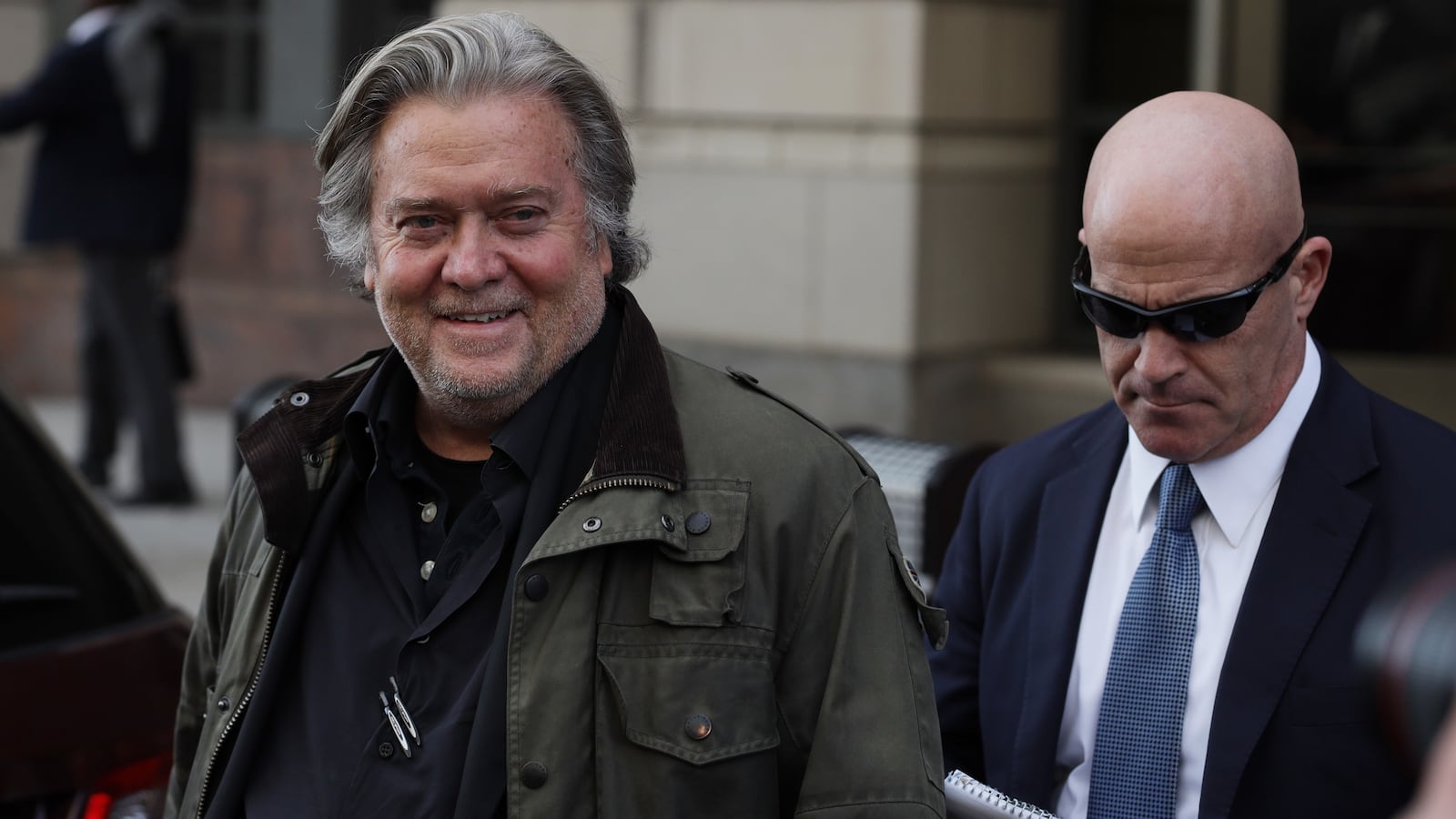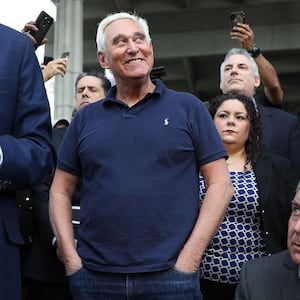Steven Bannon, President Trump’s former chief strategist turned political exile, took the stand Friday against his former friend Roger Stone, saying he once viewed him as an access point to WikiLeaks.
Dressed in several shirts and a jacket, Bannon, who was chief executive of Trump’s campaign, told jurors in Washington federal court that Stone “implied” he knew WikiLeaks founder Julian Assange had information that would be “hurting Hilary Clinton and helping the Trump campaign.”
“The campaign had no official access to WikiLeaks or to Julian Assange. But Roger would be considered if we needed an access point because he had implied or told me he had a relationship with WikiLeaks and Julian Assange,” Bannon said, according to Politico.
Stone has pleaded not guilty to several charges, including lying to Congress about WikiLeaks, witness tampering, and obstructing justice. The charges are an offshoot from former Special Counsel Robert Mueller’s investigation into Russian interference in the 2016 election.
Prosecutors allege the longtime Trump adviser knowingly lied to Congress about his interactions with WikiLeaks to protect the president during a September 2017 interview because “the truth looked bad for the Trump campaign and the truth looked bad for Donald Trump.”
Bannon, who testified Friday under subpoena, said that he met Stone in 2011 while he was an editor at Brietbart, eventually speaking to the Trump adviser every couple of weeks during the campaign. Even before he agreed to join Trump’s 2016 presidential election, Bannon said Stone “implied he had a relationship with Julian Assange.”
He added that Stone “boasted” about his relationship with Assange when they were on the campaign trail together—and was once viewed among campaign members as the “access point” to WikiLeaks.
Stone told Bannon that WikiLeaks had information that would be helpful for the Trump campaign, he testified.
“I think he implied maybe some of the emails, potentially Clinton emails or emails from Clinton, WikiLeaks potentially had. I’d view that as hurting Hillary Clinton and helping the Trump campaign,” he said, according to Politico.
In November 2018, The New York Times obtained a series of emails Stone sent to Bannon about Assange, just before the WikiLeaks email dump of private conversations between the Democratic candidate and her campaign chairman, John Podesta. A month later, Clinton lost the general election to Trump.
“Roger is an agent provocateur. He’s an expert in the tougher side of politics when you’re this far behind you’re going to have to use every tool in the tool box,” Bannon said.
During opening statements on Wednesday, prosecutor Aaron Zelinsky argued Stone passed information from WikiLeaks to Trump’s inner circle in the weeks before the batch of stolen emails from Clinton’s camp were publicly released. He then lied about his communications in his 2017 deposition with the House Intelligence Committee, prosecutors said.
“I have an idea to save Trump’s ass,” Stone wrote in an email at the time to Paul Manafort, the former Trump campaign chairman currently in prison over charges stemming from the Mueller investigation.
Stone’s defense attorney, Bruce Rogow, argued his client went into his deposition with the House Intelligence Committee with the understanding the interview was focused on Russia’s involvement in the 2016 election—and was not thinking about WikiLeaks.
“This was a Russian investigation and the fact that it was a Russian investigation colored all of his answers,” Rogow told the jury. “These parameters created the structure, created the backdrop for Mr. Stone’s appearance.”








